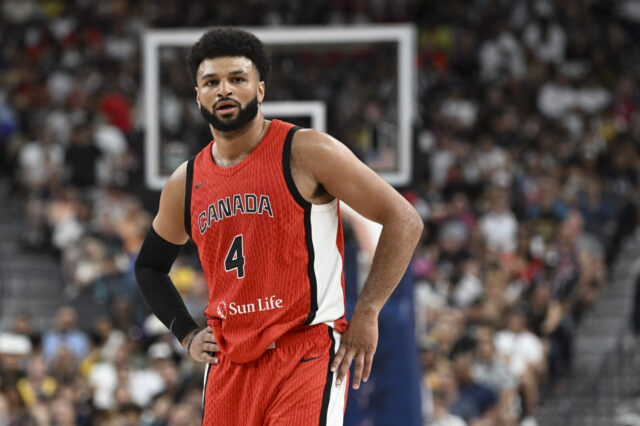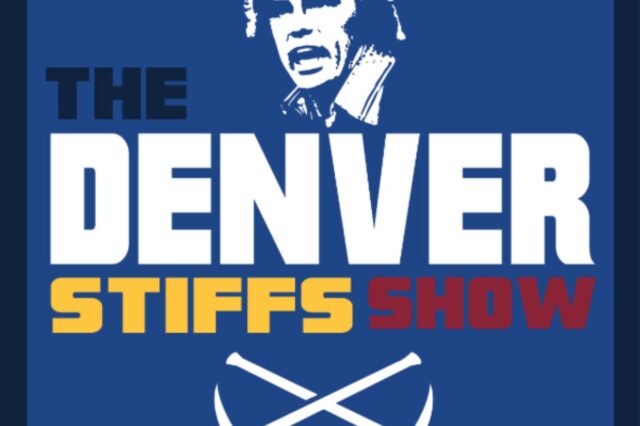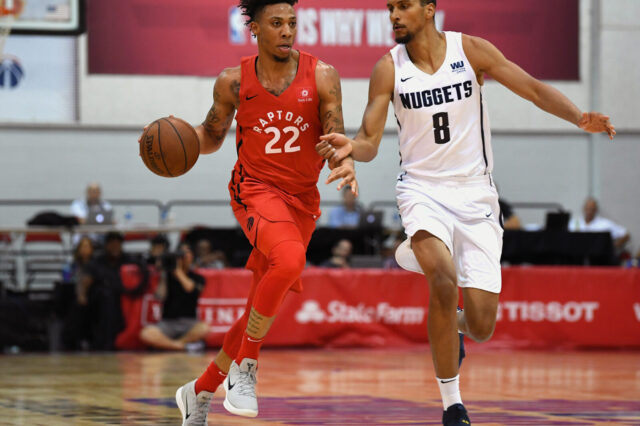As Nikola Jokic and Jamal Murray continue their development into the faces of the Denver Nuggets organization, they will become very expensive. Jokic signed a five-year $147 million contract before of the 2018-19 season, and Murray signed a five-year $170 million extension that will kick in during the 2020-21 season. With so much money tied to two players, the Nuggets are relying on both to be as great as they can be. Jokic is well on his way to justifying that contract. Murray still has a ways to go.
Surrounding the star pieces with effective complementary players becomes paramount with the salary cap structured this way. In 2020-21, Jokic and Murray will combine to earn $57 million of the projected $116 million salary cap (~49% of the cap), leaving less room for roster additions in subsequent seasons. That means the Nuggets are relatively tied to their current roster unless they sacrifice talent to clear salary going forward. They have to make do with the options they have on the current roster barring an unforeseen trade.
Gary Harris and Will Barton are locked into their contracts. Monte Morris, Michael Porter Jr., and Jarred Vanderbilt are all locked in through 2020-21 at the earliest. The Nuggets can choose to extend wing Malik Beasley and forward Juancho Hernangomez before the season if they so choose.
While many are interested in the battle at small forward sure to take place between Barton, Porter, Beasley, Hernangomez, and Torrey Craig, I will be keeping my eye on the power forward position. The Nuggets made a huge under the radar acquisition this season in forward Jerami Grant, and he projects to be an excellent fit next to Nikola Jokic long term after spending the bulk of his career with the Philadelphia 76ers and Oklahoma City Thunder. Initially tabbed as a small forward in Philly, Grant, 25, quickly transitioned to the power forward position and then became the starting power forward in Oklahoma City after Carmelo Anthony departed. Inarguably, the Thunder upgraded with Grant over Anthony, as the new starter averaged 13.6 points, 5.2 rebounds, and 1.2 blocks per game, shooting 49.7% from the field and 39.2% from beyond the arc. With Grant in the lineup next to Oklahoma City’s stars Russell Westbrook and Paul George, the Thunder scored 8.8 points per 100 possessions more than their opponents in 1,674 minutes of action.
With Paul Millsap in the lineup next to Nikola Jokic and Jamal Murray, the Nuggets outscored opponents by 7.2 points per 100 possessions in over 1,200 minutes themselves. He had a similar, perhaps greater impact on Denver’s starting unit than Grant had in Oklahoma City. Both forwards helped ease the burden on stars and point scorers this year while taking on an important defensive role. Millsap served as a back line defender with Jokic playing up on pick and rolls in Denver’s aggressive scheme, and he did it well, posting the fifth highest Defensive Real Plus-Minus at the power forward position behind only Draymond Green, Giannis Antetokounmpo, Anthony Davis, and Derrick Favors. Grant would only rank 38th on the same list, though some of his defensive capabilities were hidden playing in between Paul George and Steven Adams. Grant was an elite switch defender on guards and matched up with the best power forwards in the NBA like Giannis Antetokounmpo and Anthony Davis. Still, Millsap is unquestionably the better overall defender at this point with his ability to match up with many opposing star bigs and switch when necessary.
The question the Nuggets must grapple with is whether to prioritize the present or solidify the future.
This content is no longer available.
If it ain’t broken, don’t fix it
As I alluded to earlier, the Nuggets have been successful with Paul Millsap in tow. In the 108 games Millsap has suited up for Denver in the last two seasons, the Nuggets win-loss record is 71-37, good for a 54 win pace in both seasons. That’s a successful stretch and indicative that Denver might be unwise to go away from Millsap in any fashion.
During the 2018-19 season, Millsap contributed to a 105.4 Defensive Rating for the Nuggets when he was on the court, third best among rotation players. The interesting factor was the 114.0 Offensive Rating Millsap contributed as well, the best among all Nuggets and better than Jokic or Murray. How dependent were his offensive numbers on playing with the starting unit? Millsap had the second best Offensive Rating on the Nuggets playing next to Jokic behind only Malik Beasley, who nearly shot 50-40-90 this year.
The Nuggets have figured out how to win with Millsap in the lineup due to his skills on both ends and his willingness to shift his game around Jokic, Murray, and the other options offensively. While he made an All-Star appearance four seasons in a row for the Atlanta Hawks, Millsap took a step back with his role offensively when he arrived in Denver and did so again last season, going from over 24% Usage Rate in Atlanta to under 20% in Denver and four fewer shots per game. Ultimately, Millsap had one of his most efficient seasons last year in his age-33 year.
Millsap played well in complementing the Jokic-Murray two-man game during the playoffs this past year, averaging 14.6 points per game and maintaining a similar level of shooting efficiency. The defense was good against bigs like LaMarcus Aldridge and Enes Kanter, and no big man shot better than 50% in the playoffs against him. There’s definitely a place for that, but the power forward position is becoming less important for generating offense in the stacked Western Conference. Players like Aldridge and Anthony Davis will start at power forward but move frequently to center. Beyond those two players, no playoff caliber team uses a high volume scorer at power forward that isn’t closer to a wing in the first place (Bojan Bogdanovic in Utah, possibly Kawhi Leonard in Los Angeles). Millsap’s elite positional defense becomes less important in these situations, and being able to punish mismatches offensively becomes more important. When the Portland Trail Blazers went small with Evan Turner guarding Millsap in Games 6 and 7, he couldn’t make them pay. That could become a microcosm of the issues facing the Nuggets in the immediate playoff future. Can Denver utilize Millsap as a switch defender against Damian Lillard, James Harden, or even Stephen Curry in the playoffs for another season? This is the ultimate question.
This content is no longer available.
Investing in future returns
The Nuggets acquired Jerami Grant using a 2020 first round pick for a reason this offseason. Tim Connelly told Nuggets media earlier this summer that he had coveted Grant for a long time, and for good reason. He has the ideal skill set to play in Denver’s system long term on both offense and defense, and Nikola Jokic will very much enjoy having such and athletic running mate again.
Nuggets fans will be sure to have flashbacks of Kenneth Faried running the floor at power forward next to Jokic in 2016-17 when they see Grant sprint the length of the floor in transition and sky for a dunk. Grant, a wiry 6’9 athlete with a long wingspan, solid hops, and the makings of a three-pointer, will help jumpstart the offense at times with his ability to generate easy baskets by playing hard.
On defense, Grant struggled defending some of the more fundamental and traditional scorers last year as well as some isolation small forward types masquerading as power forwards like Danilo Gallinari, T.J. Warren, and Harrison Barnes. Three of the players he performed well against should pique the interest of Nuggets fans though: Giannis Antetokounmpo, James Harden, and Donovan Mitchell.
In Grant’s lone contest against Giannis, he matched up with the Greek Freak on 44 possessions, according to the NBA website. Giannis scored 18 points, but Grant blocked his shot three times, forced three turnovers, and held Giannis to 5/12 from the field. These are the games that represent well what Denver will have to face in Anthony Davis, a freak athlete at power forward that’s a seven footer and an MVP candidate. Finding a player that can make life difficult for an MVP candidate is extremely difficult.
In Grant’s four games last year against Harden, he matched up with the Beard on 33 possessions. The majority of these possessions were in isolation, as Harden attempted a shot 16 times, making just four of them. Grant picked up Harden on switches, contested deep threes with his length and agility, and made Harden work for everything he could get.
In Grant’s four games against Mitchell, he defended him on just 25 possessions but proved too much for the young Utah Jazz guard. Mitchell shot just 1 of 7 this past year in those 25 possessions as the Thunder swept the Jazz with Grant heavily contributing in all of those games and being a high plus-minus in three of the four contests.
The primary factor with playing Grant comes down to his penchant for guarding athletic forwards and switching onto guards in isolation. Both skills are incredibly important for forwards in the NBA, perhaps the most important in a league dominated by scoring guards, LeBron James, Kevin Durant, and Kawhi Leonard. Grant can match up with those players, or at least he has in the past in Oklahoma City’s system. For Grant to be the most impactful in Denver, he will have to fill a similar role. So many of Denver’s biggest threats this year are guard and forward heavy squads rather than dominated by big men. The Jazz have gone small with their personnel this year to match the Warriors and Rockets. The Blazers went small to beat Denver in the second round last year. Denver must have capable options to match up with those teams, and Grant is the perfect hybrid between maintaining size and going small. He’s that athletic and capable as a switch defender.
This content is no longer available.
The Verdict
Denver’s best chance at a championship this season rests in their finding a way to successfully combat the Los Angeles based teams, particularly the Clippers. Torrey Craig may be the best option to defend either Leonard or George, but he’s merely one man. Denver must be willing to experiment with different lineups during the regular season, and that means not making a final decision until the playoffs arrived. The Toronto Raptors didn’t make a final decision on their starting lineup this past season until they traded for Marc Gasol, but preceding that, the Raptors had made the decision to go with the length and athleticism of Pascal Siakam at starting power forward, who experienced a breakout season and won the Most Improved Player award for 2018-19. This pushed Serge Ibaka permanently to the bench who, while very good, fit the best as a versatile option who could play both big man positions.
For the Nuggets to reach a new level of competitiveness against teams like Golden State, Houston, and Utah, they may need to try something similar, regaining some athleticism and quickness with Grant in the lineup and utilizing the veteran savvy of Millsap off the bench. It doesn’t mean Millsap wouldn’t play a ton, and he would continue to play next to Jokic and Plumlee at power forward and in some lineups at center next to Grant and getting more defensive. Either way, the Nuggets must find counters to the spacing other contenders prioritize, and that could mean becoming more athletic.


